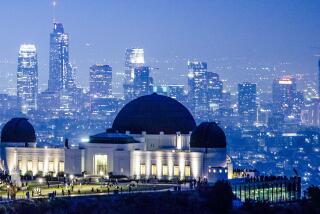Kabul’s Mayor Dusts Off Plans From Last Time He Held the Job -- in ’78
- Share via
KABUL, Afghanistan — When Ghulam Sakhi Noorzad was appointed mayor of Kabul in March, the first thing he did was visit his old engineering office and rifle through a filing cabinet that had been closed for more than 20 years. Under a thick layer of dust and dirt he found what he was looking for: the blueprint for the Afghan capital he drew up a quarter-century ago.
His master plan will form the basis for rebuilding postwar Kabul. And Noorzad, 62, the onetime Kabul mayor who was fired by the Soviets in 1978, has returned to take up his old job.
“If my plans had been realized, we could have had a city that developed countries” would envy, he said in his office surrounded by bouquets of flowers from well-wishers. “I had dreams for public parks and green spaces. I wanted wide roads and boulevards. But Kabul will once again be beautiful.”
If ever a city needed a lift, Kabul would be it. Corruption has reached extraordinary levels and cost two recent mayors their jobs. The last one, a former wrestler, was sacked by President Hamid Karzai for accepting bribes. In his first week in office, Noorzad fired 43 civil servants for accepting bribes or selling land illegally.
Neglect and war have taken their toll on Kabul. Most buildings have collapsed due to bombings or are pockmarked by bullet holes. The population has swollen from 300,000 to 2 million in three years as people flood in from the provinces seeking jobs or safety from warlords and Taliban insurgents.
As a result, the beautiful, tawny mountains surrounding the city teem with families living in United Nations-supplied blue tents. The public parks that once blossomed with roses and pomegranate trees have been illegally sold to businessmen who used them for shopping centers and mansions. Even streetlights have been stripped by looters. Raw waste runs in miles of open sewers, poisoning the city’s air and streets.
Noorzad has a budget of $8 million and a staff of 5,500 to deal with this challenge. He spends his Fridays -- a weekend day in Afghanistan -- walking and talking around the city.
On one Friday, he climbs down to the muddy rushes of the Kabul River and lectures a crowd of currency exchangers and carpet sellers who ply their trade where fish once swam. “I have asked you to put the garbage in bags and leave them on the side of the street, but no one is listening,” he says. “If we don’t do this, the foreigners visiting our city will laugh at us.”
The river is choked with household and human waste. Someone suggests that a public toilet be built. Noorzad nods in agreement and promises to look into it.
“This is the capital of Afghanistan. It should be a good capital,” he says. “But it is a filthy city, it is a ruined city.”
In some ways, the entire country is starting over from the late 1970s, when communists took power. It is relying on a growing number of exiles who are returning to help with the reconstruction. Many who left in the early communist years were part of the professional classes who are returning to jobs they held 25 years ago -- like Noorzad.
Hundreds of Afghan Americans from the San Francisco Bay Area have returned to see what happened to their country or to set up businesses. Restaurants, hotels and supermarkets are opening, creating a buzz absent since 1978.
Noorzad, who earned a doctorate in engineering from Kabul University, remembers the day the Russians fired him. He had just returned from an international conference of municipalities held in Italy.
“At 9:30 in the morning, officers with Kalashnikovs [assault rifles] came,” he said. They took me to a basement. I had no idea where I was because they put a bag over my head.”
He fled to Pakistan, then India. In 1985, he moved to Canada with his wife, Zobaida, and five children.
“I was never happy as I am in Kabul, my own country. I was never happy in that society as I am here,” he said. “I want to serve my people again.”
On one of the major roads, Bagh Bala, a crew of six men arrived to clean out a ditch of waste. The thick, black sludge was shoveled into trucks donated by India to be taken to a landfill.
The men who empty the ditches earn $35 a month, and although earlier cuts have been reinstated, they complain to the mayor that they are still hurting.
“I had $5 cut from my salary,” one said. “I can’t earn enough to feed my family.”
Noorzad shook his hand and said: “God bless you. You will get your salaries. You are working hard and deserve a bonus. But no one can cut even a penny from your wages. I am on your side.”
More to Read
Sign up for Essential California
The most important California stories and recommendations in your inbox every morning.
You may occasionally receive promotional content from the Los Angeles Times.












